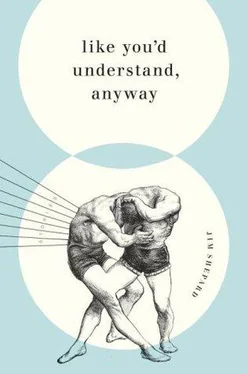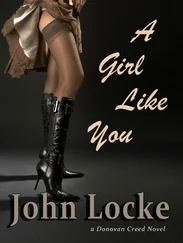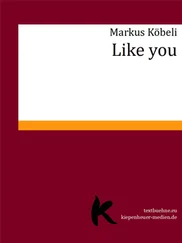October 10th
We have found only a runnel with mud so thick I could not swallow it. Browne managed to drink some of it made into tea. It fell over the lip of his cup like clotted cream, and smeared the horses' noses like clay. They refused it. Browne was then ill all the next day.
October 12th
Some kind of cyclopean boulders now before us. Even the horses regard them with dismay. I dismounted and ascended the first for a bearing. It was no trifling task in our condition and these temperatures. Beale accompanied me with the instruments. “This is more than a Government day's work, sir,” he said on the way back down.
I could not respond. Our view had been over as terrible a region as Man ever saw. Its aspect was so mortifying that it left us with not a tinge of hope. We have to return, with every promise of a better country within reach annihilated. We all stood dumbly in the heat at this understanding, as if concussed by a blow, before eventually retiring to our midday shelter under the dray. Mack and Gould wept. Browne kept up an intermittent continuous hum, like a bush insect. Was it possible to give up, having achieved nothing? I asked myself aloud. One of the horses toppled to its knees as if by way of answer. No one spoke again until sundown, when we turned about and headed back the way we came. We have been defeated, I reminded our little group, by obstacles not to be overcome by human perseverance.
Our bearings record that the farthest point to which we penetrated was to Longitude 138.5.00 and Latitude 24.30.00, and I will in truth affirm that no men ever wandered in a more despairing and hopeless desert. I have no other observations to add on the nature of this country.
November 17th
Made camp yesterday at 6 a.m., nearly done in from lack of food and water. Three of the seven horses lost, the other four nearly useless. All of us are afflicted by a fatigue that seems impossible to overcome. The buttons on our shirts by mid-morning are so heated as to pain us. Few men have ever laid themselves down to rest, if it can be called rest, as bereft as I have been today.
November 20th
Browne has somehow managed another expedition to the south on one of the fresher horses to ascertain how much water remains on our line of retreat. He returned this morning to report that one of the deepest and narrowest channels had long gone dry. With that source lost, there can be no water nearer to us than seventy-eight miles, and perhaps not there.
The horses are at their wits' end. What grass there is flies to powder under their tread. The last ram has taken the staggers and Beale has ordered him killed.
Whirlwinds blowing all morning from the NE increased to a furnacelike gale. The incinerating heat was so withering that I wondered if the very trees would ignite. Everything, animate and inanimate, gave way before it: the horses with their backs to it and noses to the ground, lacking the strength to raise their heads; the sheep and dogs huddled beneath the drays. One of our thermometers, graduated to 157 degrees, burst. Which is a circumstance I believe no traveler on this earth has ever before had to record.
November 24th
A party rebellious to my purposes now intends to strike out to the south in hope of relief. Browne reported this to me. And of whom was this party constituted? I croaked, gazing at him with what I hoped to be severity. Beale, he said. Hamilton and Mabberly Gould. Cuppage. Purdie. Mack and Moorhouse. And Mander-Jones, to lead.
“That's everyone, besides Hill and yourself,” I told him.
He agreed.
“Cuppage is unconscious,” I reminded him.
“Mack says he speaks for Cuppage,” he told me.
I asked after his own status. Was he going south too?
“I have just been there,” he said.
I assembled the group and addressed the assembly without anger. I told them I could only insist upon all I had observed. And that I have always been open to reason. But that I was convinced that at present no hope lay to our south, at least not until the rains returned.
They killed the rest of the bullocks and scraped and sewed their hides to carry water. They will take one cask and leave one. One dray, carrying only Cuppage, the water, and some dried beef and flour. Mander-Jones, who can hardly see from the bites of the flies, is leading nevertheless. He refuses to talk to me at any length. I asked what he wanted done with his specimens and notes and then regretted the meanness of the question.
December 1st
They are gone. The dogs that were left followed them out of camp.
December 2nd
Hill has made a stew of some of the beef. At the last moment Browne tried to arrest the mutineers' departure with a startling display of passion. Now he seems to have withdrawn into himself even more. “Do you think they have any chance?” I overheard Hill murmur some hours later while serving him his stew. Whatever he answered caused poor Hill to weep once he'd returned to his cooking fire.
December 5th
A squall has leveled our remaining tents and torn away the canvas covering of our dug-out. My papers are gone. What's left of our supplies has been scattered. I found a sextant and two goose quills. The weather remains infernal. A gale unrelentingly blows from the N or E. The flies do not relent. How is human foresight to calculate upon such a climate? We are all suffering from piercing pains in the joints. My gums are now hugely swollen. Hill's lower leg muscles are so contracted he cannot stand.
We sit about with the aimlessness of aborigines, gazing into each others' eyes and preparing for the worst. Only when thinking of my companions do I have regrets. One of my father's favorite resolutions was always that life was worthless save the good that one might do. “We're forced to conclude, then, that for him, life was worthless,” Browne remarked during one of our early father discussions.
December 11th
We have pains and do not understand what they are. Browne has become unresponsive, immersed in his own unwinding. He has spoken of starfish and sea ferns. I do not know what we will do if he is laid low. He has always been one of those whom life pushed from one place to another. A useful naysayer, the kind Australians call a “no-hoper.”
December 23rd–24th
Hill is unable to walk. Browne and I have resolved to assay one of the unexplored ravines to our E. He speaks of a great flood there, and drowned cattle. Hill looks at him through his tiny spectacles with pity. Hill says he feels no pain while stationary. The skin of his calves and thighs is black and the discoloration is proceeding upwards.
Our horse led us up a draw all night while we dragged along behind it. Daybreak found us in a smallish box canyon of some sort, sheltered, at least, from the sun. Browne then slept while I explored as best I could. It was an extraordinary place, and evidence of our inland sea. There were marine fossils and conglomerate rock that looked like termite mounds. The remains of strange undersea plants and fish fins were clearly evident. Grotesque shapes, and a great silence. I roused Browne to show him. We were both tearful at the sight. “The Beadle Sea,” he said to himself when he came around and looked. “No, no, the Browne Sea,” I answered, cradling his head, but by then he was again already asleep.
I laid myself beside him, grateful for his presence. He always doubted my judgment but thought my leadership to be worth my blunders. We awoke some hours later to find the horse gone and twilight coming on. More sleep, Browne in a half-conscious state and making small gesticulations. It was as if he had been submerged in a kind of gloaming of the mind, an infant's fatalism. Near daybreak the moon rose in the E and the sun followed, warming us both. It was not possible to tell how long my friend had been dead. I eased my arms from around him and stood, then turned round myself and cried. I squatted beside him. When the sun was full on my head I found a flint and scratched onto the rock face beside where he lay J. A. BROWNE S.A.E. DEC 251840. I sat with my back to his side for another full day, taking only a little water at sunset. In the blue moonlight the stars seemed to multiply and wheel. I gazed upward full of grievance and self-justification. I called out that we should be done justice to. The canyon walls gave back their response. In the moonlight they became a luminous cerulean. I heard the slosh and slap of water in a great bay. I knew I had had a dream past the wit of man to say what dream it was. The wind picked up. My ears filled with sound. The blackness of a sandstorm dropped over the canyon rim like a cloak. Its force turned my friend onto his side. Its force turned my face to the rock. I saw strange wraiths. Wormlike, coiling figures. Terrible faces. My eyes clogged with grit. I hoped they would fill with everything they needed. While my throat filled with what poured over the canyon rim. And my heart filled with the rest.
Читать дальше












